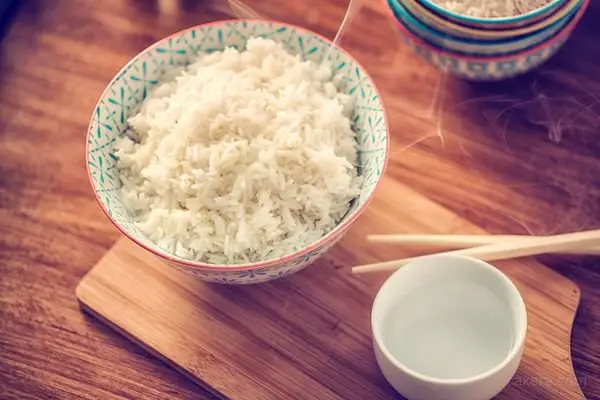When it comes to baking, we often stick to the usual ingredients like flour, sugar, eggs, and butter. However, adding rice vinegar to your baking recipe can take your creations to a whole new level.
Rice vinegar is a versatile ingredient that can enhance the texture, flavor, and freshness of your baked goods. In this article, we’ll explore the benefits of using rice vinegar in baking, provide tips on how to use it, and answer frequently asked questions.

Benefits of Using Rice Vinegar in Baking:
- Enhances the Texture: Rice vinegar is slightly acidic, which makes it a great ingredient to use in baking. It can help break down the gluten in the flour, resulting in a softer and fluffier texture. This is especially useful when baking bread, cakes, and cookies.
- Adds Flavor: Rice vinegar has a mild and slightly sweet flavor that can add a unique taste to your baked goods. It works well in both sweet and savory recipes, making it a versatile ingredient.
- Acts as a Preservative: Rice vinegar can help prolong the shelf life of your baked goods by preventing the growth of mold and bacteria. This is particularly useful when baking items that have a high moisture content, such as cakes and muffins.
Tips on Using Rice Vinegar in Baking:
- Use in Small Quantities: Rice vinegar is quite potent, so it’s important to use it in small quantities. Start with 1-2 teaspoons in your recipe and adjust accordingly.
- Substitute for Other Vinegars: If you don’t have rice vinegar on hand, you can use other types of vinegar as a substitute. However, keep in mind that the flavor and acidity level may differ.
- Use in Combination with Baking Powder or Baking Soda: Rice vinegar works best when used in combination with baking powder or baking soda. This will help to activate the leavening agents and create a light and airy texture.
FAQs
Yes, you can use rice vinegar as a substitute for white vinegar. However, keep in mind that the flavor and acidity level may differ.
Yes, rice vinegar can be used in gluten-free baking. It can help to improve the texture and flavor of gluten-free baked goods.
Yes, rice vinegar can be used in pie crusts to create a flaky and tender texture.
Conclusion
Rice vinegar is a great ingredient to add to your baking recipes. It can enhance the texture, flavor, and freshness of your baked goods. Use it in small quantities, in combination with baking powder or baking soda, and as a substitute for other vinegars. Whether you’re baking bread, cakes, or pies, rice vinegar can take your creations to the next level.
